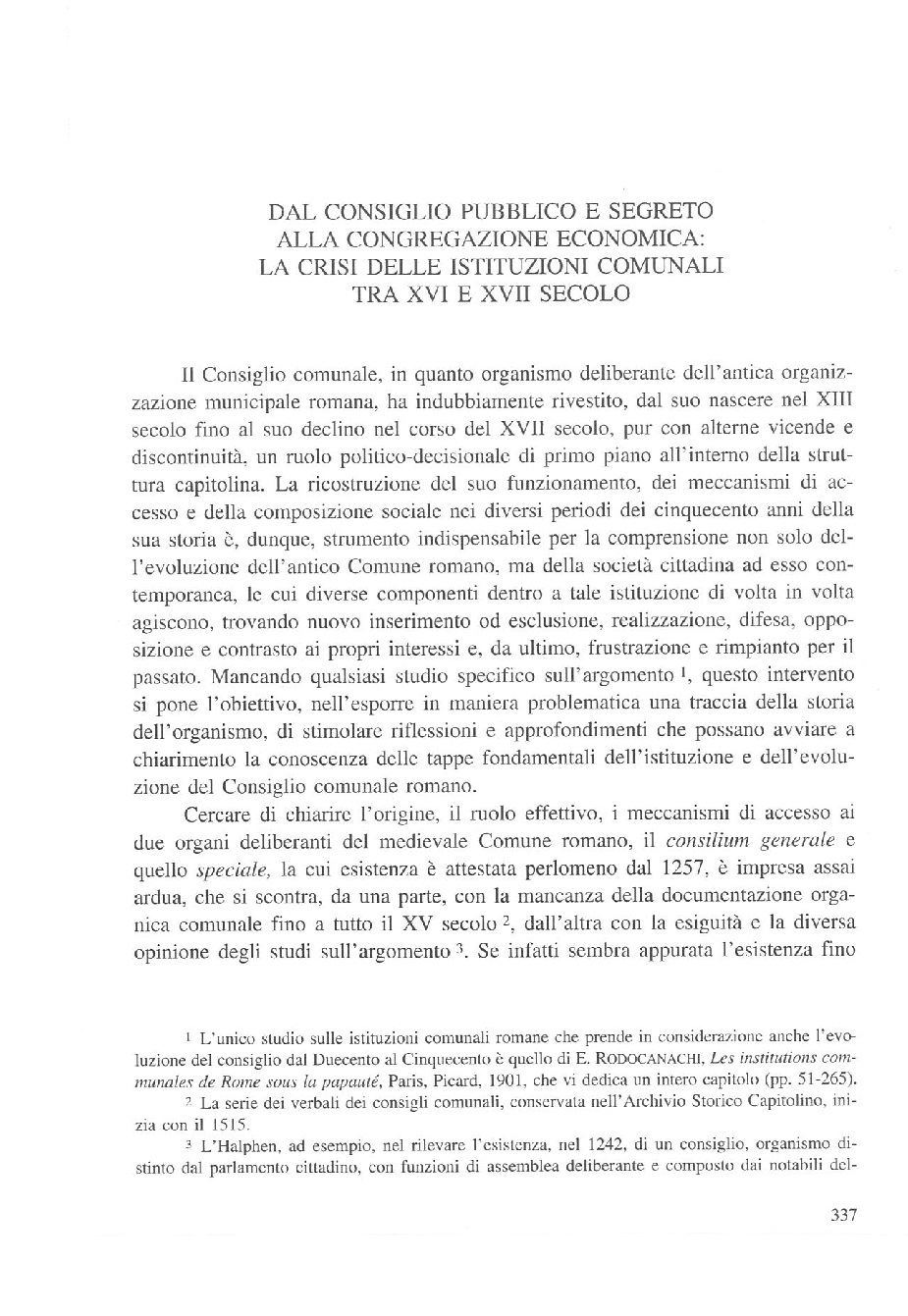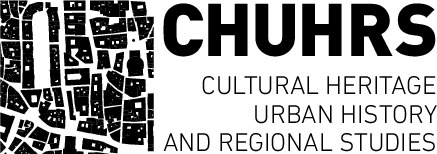
- Roma moderna e contemporanea
- Codice etico
- Editore e amministrazione
- Organi scientifici
- Indicizzazione e valutazione
- Norme editoriali
- Ultimo fascicolo
- Indice dei fascicoli
- Indice degli autori
- Articoli Open access
- Call for papers Numero monografico
- Abbonamenti
- Info recensioni
- Trasferimento di copyright
- Richiesta di autorizzazioni
AMBIENTE DI TEST
Indice dei fascicoli
ROMA MODERNA E CONTEMPORANEA » 1996/2 » Il Comune di Roma. Istituzioni locali e potere centrale nella capitale dello Stato Pontificio (ESAURITO)
ISSN 1122-0244
Franceschini Michele
Dal Consiglio pubblico e segreto alla congregazione economica: la crisi delle istituzioni comunali tra XVI e XVII secolo
pp.337-362
Articoli
Abstract: FROM THE PUBLIC AND SECRET COUNCIL TO THE ECONOMIC CONGREGATION: THE CRISIS OF THE COMMUNAL INSTITUTIONS BETWEEN THE XVI AND XVII CENTURIES
This study of the principal events in the history of the deliberating body of Rome’s town hall, from its origin in the XIII century to its decline and disappearance at the end of the XVII century, concentrates on the evolution and the changes that took place in the city’s governing class. In particular, the analysis of the social composition of the town council, the most important arena for political debates and decision, allows us to perceive the gradual renovation of the governing class over a period of four centuries. The process finally stabilized in ca. 1750.
The elimination of the town council and its substitution by an economic congregation in 1694 must be interpreted as the final steps in this process of rigid definition and intransigence by the governing class. Official enacted in 1746 with the Urbem Romam papal bull which limited the number of families constituting the Roman nobility, it was an indispensable requisite in order to be appointed to the higher spheres of the municipal administration.

Referenze
- download: n.d.
- Url: http://www.chuhrs.eu/?contenuto=indice-dei-fascicoli-rmc&idarticolo=71
- DOI:
- citazione: M. Franceschini, Dal Consiglio pubblico e segreto alla congregazione economica: la crisi delle istituzioni comunali tra XVI e XVII secolo, "Roma moderna e Contemporanea", IV/2, pp.337-362, DOI:
